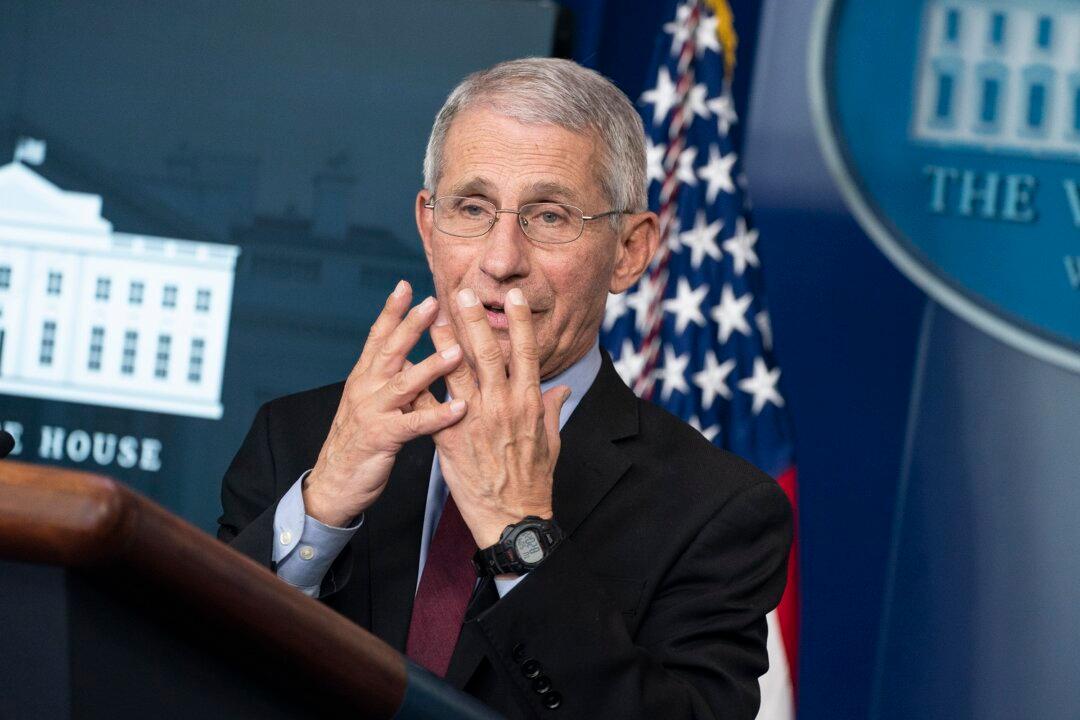Infectious disease expert Dr. Anthony Fauci said at a Jan. 21 press briefing that, while new mutations of the CCP virus are far more transmissible than the original variants, vaccines can reduce their spread and impact their ability to mutate.
Ramping up COVID-19 vaccinations will not only help stop the virus from spreading, but they will also reduce the disease’s ability to mutate into new variants, Fauci said.





